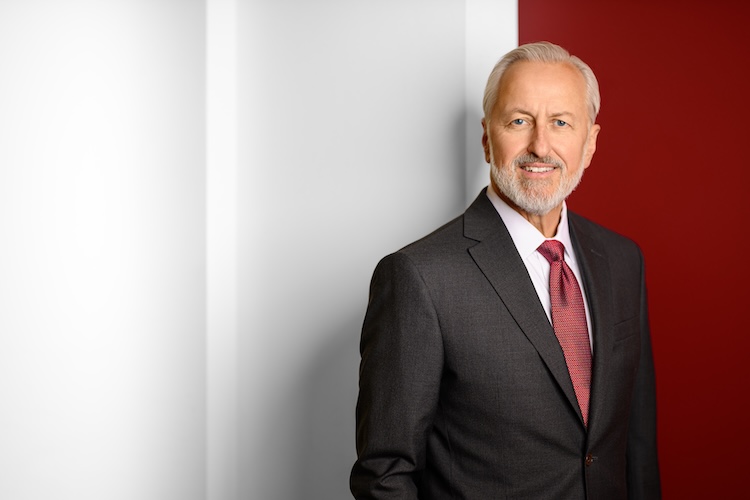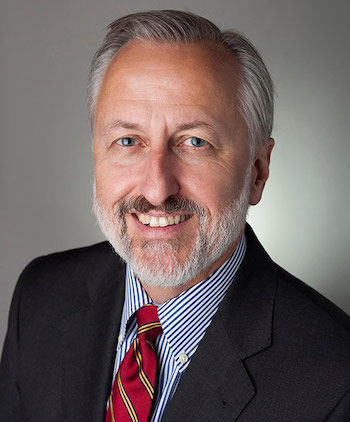
Pat Hopkins, dean of Indiana University’s Kelley School of Business:
When Patrick Hopkins became dean of Indiana University’s Kelley School of Business in March, he knew the stakes were high. Business schools face what he calls “tremendous headwinds” — from public skepticism over the value of a degree, to the accelerating disruption of artificial intelligence, to a labor market that looks very different for today’s freshmen than it will four years from now.
“If you don’t employ students coming out of business school, you’re dead in the water,” Hopkins says. “That’s got to be front and center for us — what do jobs look like, not just now, but when these students graduate. Which means I need to have the right inputs in place today.”
For Hopkins, that means rethinking everything — from how Kelley trains its faculty, to how it engages employers, to how it positions students for success in an AI-driven economy.
BUILDING AN IN-HOUSE AI ‘CONSULTANCY’

Patrick Hopkins: “Faculty have to model that adaptability. For decades, professors could teach the same thing, the same way, year after year. Those days are gone”
Hopkins is adamant that preparing students starts with preparing faculty. Too often, he says, schools talk about AI in terms of what students need, without equipping the people who actually teach them.
“The last thing I want to do as a leader is have an unfunded mandate — to say to everyone, ‘You need to AI yourselves.’ That’s pretty hollow,” he says.
Instead, Kelley is hiring a five-person in-house consultancy: experts who will help faculty embed AI tools into their courses, redesign curriculum, and develop new ways of teaching. “We’ve had a flood of applications,” Hopkins says. “This should be up and running within the next month. I think it’s a unique approach, but I suspect it won’t be unique for long once other schools see how it plays out.”
Kelley has also published its own AI Playbook, a best-practices guide on using AI ethically in teaching, research, and service — and made it freely available to other institutions. “This is a Kelley product, but we wanted to share it. We want to help our colleagues at other schools, too,” he says.
AI AS TABLE STAKES — BUT HUMAN SKILLS STILL MATTER
Hopkins has been talking with executives across industries, and the message is clear: AI is no longer optional. “AI is really table stakes now. It’s considered a necessary skill set much like Excel was for a very long time,” he says.
But the dean insists that the rise of AI doesn’t replace the enduring need for human skills. “Business is still a social endeavor. Selling, teaming, communications, ethical frameworks — those are the skills that are going to be in demand. That’s where we’re doubling down: more client-facing projects, more simulations, more experiential learning.”
AI, he stresses, won’t become a siloed degree at Kelley. “We’re not going to launch a business AI major. AI belongs everywhere — in marketing, in management, in systems. The best thing I can do is make sure it’s embedded across everything we do.”

Indiana Kelley photo
‘FUTURE-PROOFING’ FACULTY — TO FUTURE-PROOF STUDENTS
Hopkins talks about “future-proofing faculty,” a phrase that, for him, isn’t just about professors keeping up with technology — it’s about ensuring students are prepared for a job market that shifts faster than ever.
A business school’s survival depends on its graduates landing jobs, he says. “I need to care about what those jobs look like in four years — which means I need to make sure we have the right inputs in place now.”
Future-proofing faculty, then, becomes the first step in future-proofing students. Hopkins notes that AI is now “table stakes,” a baseline competency much like Excel once was, but the careers his graduates will enter still demand high-level human skills: teaming, communication, problem solving, and ethical judgment. “Faculty have to model that adaptability,” he says. “For decades, professors could teach the same thing, the same way, year after year. Those days are gone.”
By giving faculty the resources, incentives, and AI tools to continually refresh their courses, Kelley hopes to embed both technological literacy and timeless human skills across the curriculum. “The more adaptive our faculty are, the more adaptive our students will be,” Hopkins says.
